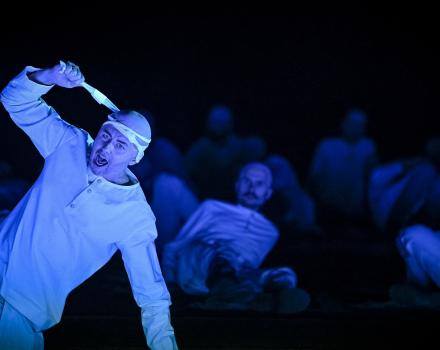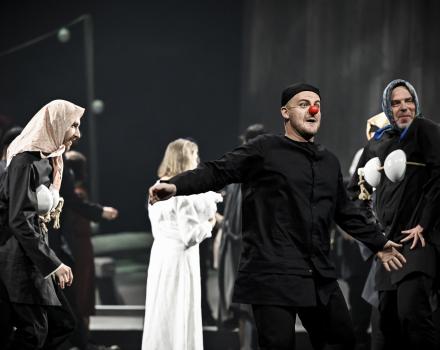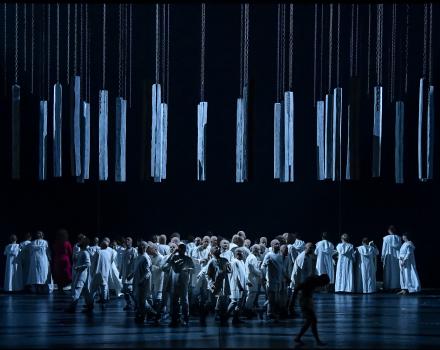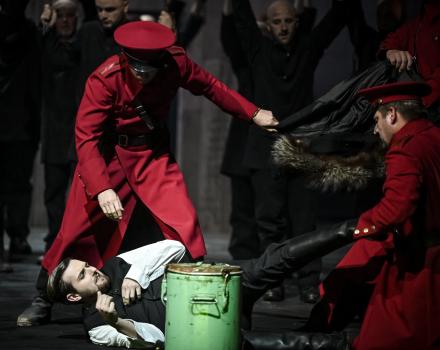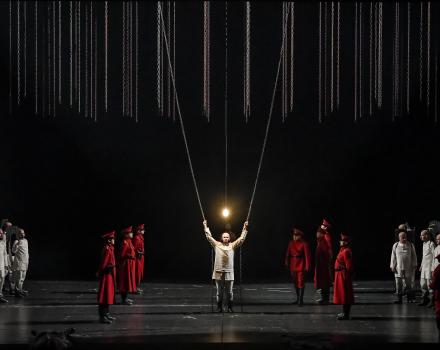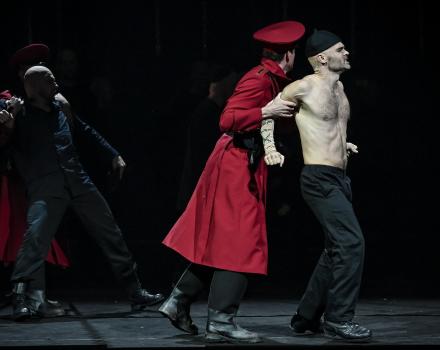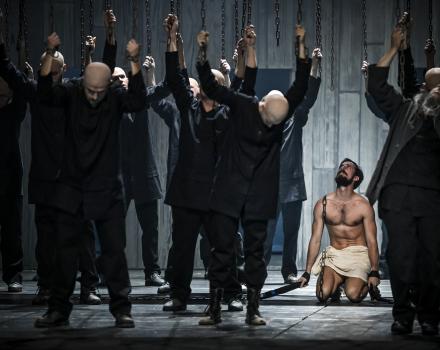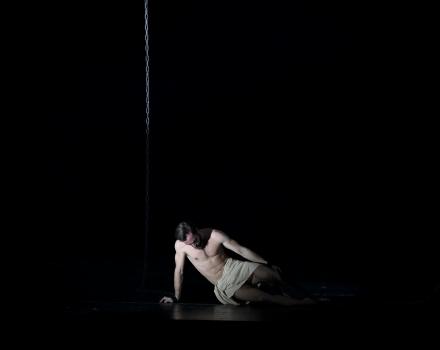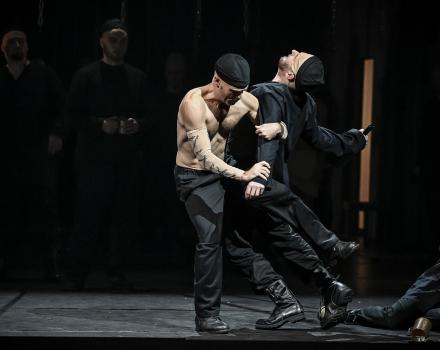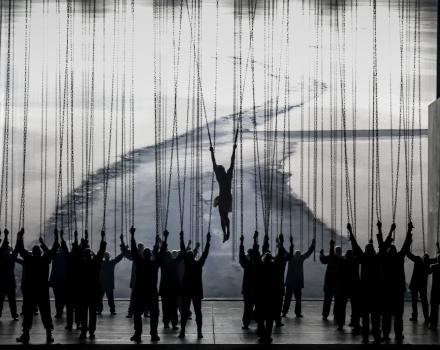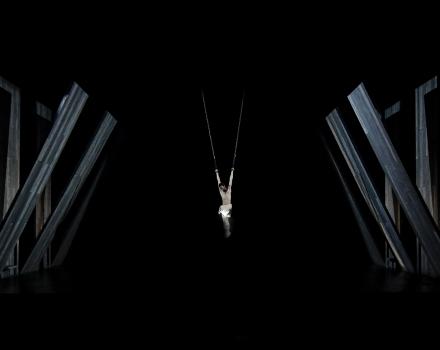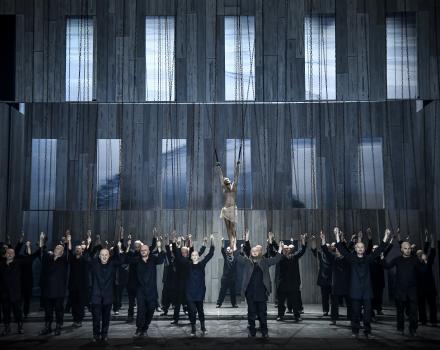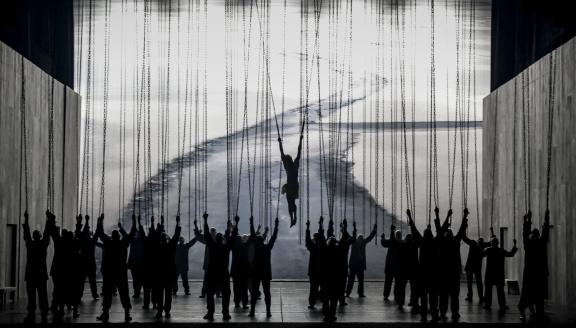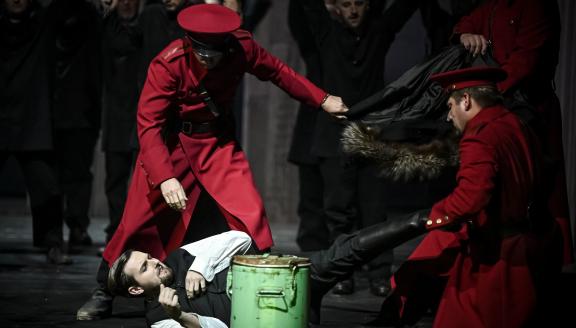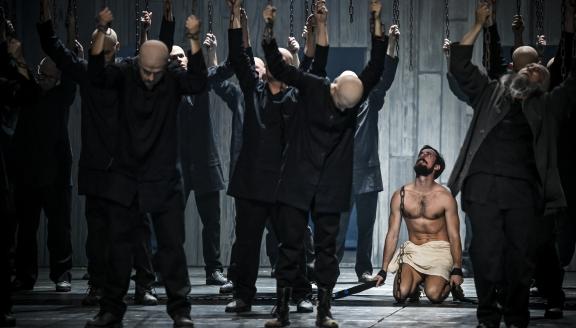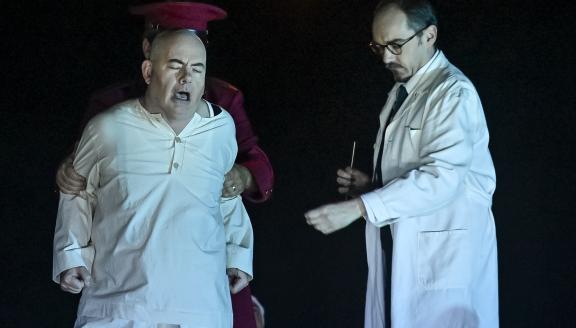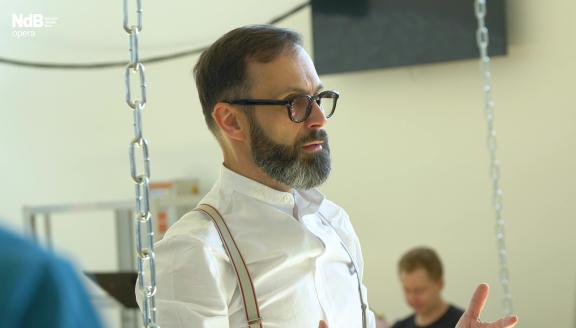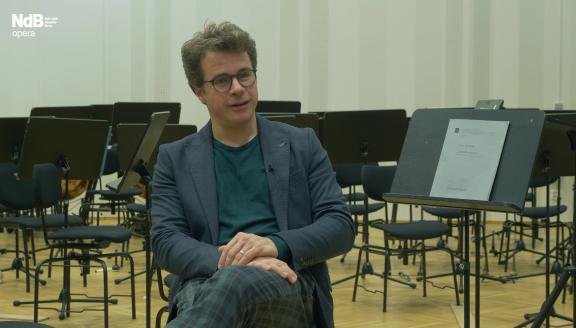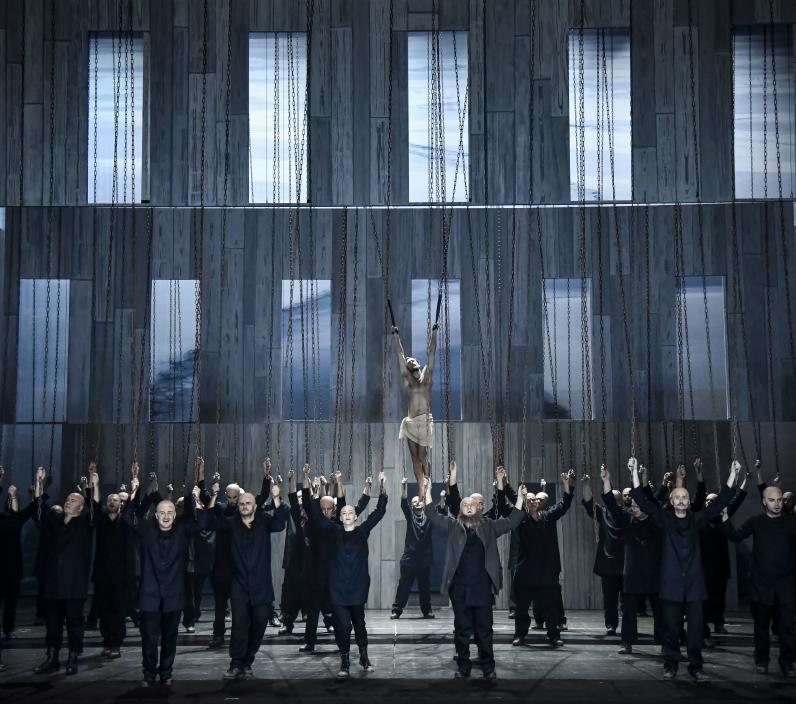
Can the darkest moments of life also lift our souls? Drawing on his own experience in a Siberian prison in the company of misfits, murderers and theives, Dostoevsky was inspired to write his novel Notes from a Dead House, telling his brother at the time: ‘Believe me, there were among them deep, strong, beautiful natures, and it often gave me great joy to find gold under a rough exterior.’
In Janáček’s hands, Dostoevsky’s inspiration and the raw material drawn from an appalling world of incarceration find an even more powerful form of expression in his last opera, From the House of the Dead. Unfettered by conventional story-telling, Janáček wrote his own libretto, freely weaving together a series of stories of everyday prison life and of the fates of individual convicts. The cast is exclusively male and made up of a collective, rather than of interacting soloists; a chorus opera from which individual speakers step out to tell their tales. The longest monologue of all, Šiškov’s, told in the quietness of the prison hospital at night, is emblematic of the whole opera: a harrowing tale constructed around a transcendentally gentle theme, just as Janáček’s own compassion threads through and transforms his grimmest and yet most uplifting opera. Despite an oppressive finale, Janáček wrote at the beginning of the score, ‘In every creature a spark of God!’ And this is this spark that inspired the National Theatre in the composer’s home city of Brno, to connect Janáček’s last opera with an equally distinctive work, his Glagolitic Mass. Janáček said of his Mass : ‘I wanted to capture here faith in the security of the nation not on a religious basis, but on a moral, strong one, which takes God as a witness.’ This live stream from the heart of Janáček country - offering a staged version of the Glagolitic Mass as a continuation of From the House of the Dead in a new critical edition by Prof. John Tyrrell - should bear new testimony to the power of faith in man and to the genius of their local composer.
Cast
FROM THE HOUSE OF THE DEAD
|
Alexander Petrovich Gorjanchikov
|
Roman Hoza
|
|---|---|
|
Luka - Filka Morozov / Cobbler's Wife
|
Gianluca Zampieri
|
|
Skuratov / Priest’s Wife
|
Peter Berger
|
|
Shishkov / Miller
|
Pavol Kubáň
|
|
Prison Governer
|
Jan Šťáva
|
|
Aljeja, a young Tatar
|
Jarmila Balážová
|
|
Tall Prisoner / Young Prisoner / Voice from the Kirghiz Steppe / Actor - Prisoner / Prisoner 3 / Elvira
|
Zbigniew Malak
|
|
Short Prisoner / Prisoner 1 / Blacksmith / Chekunov / Miller’s Wife
|
Lukáš Bařák
|
|
Shapkin / Drunken Prisoner/ Merry Prisoner / Neighbour
|
Eduard Martyniuk
|
|
Prisoner with the Eagle / Prisoner 2 / Kedril / Cherevin
|
Vít Nosek
|
|
The Old One
|
Petr Levíček
|
|
Prisoner A / Don Juan / Brahman
|
Tadeáš Hoza
|
|
Priest / Doctor
|
Josef Škarka
|
|
Cook / Clerk
|
Kornél Mikecz
|
|
Prisoner B / Obstreperous Prisoner / Knight
|
David Nykl
|
|
Whore
|
Jana Hrochová
|
|
Guard
|
Vilém Cupák
|
|
Eagle
|
Michal Heriban
|
|
Luisa
|
Edit Antalová
|
|
Aljeja’s Mother
|
Eva Novotná
|
|
Akulina
|
Kateřina Kněžíková
|
|
Chorus
|
National Theatre Brno Choir
|
|
Orchestra
|
National Theatre Brno Orchestra
|
| ... | |
|
Music
|
Leoš Janáček
|
|---|---|
|
Text
|
Leoš Janáček
after Fiodor Dostoïevski
|
|
Conductor
|
Jakub Hrůša
|
|
Director
|
Jiří Heřman
|
|
Sets
|
Tomáš Rusín
|
|
Costumes
|
Zuzana Štefunková Rusínová
|
|
Lighting
|
Jiří Heřman
|
|
Dramaturgy
|
Patricie Částková
|
|
Chorus Masters
|
Martin Buchta
Pavel Koňárek
|
|
Choreography
|
Jan Kodet
|
| ... | |
GLAGOLITIC MASS
|
Soprano
|
Kateřina Kněžíková
|
|---|---|
|
Alto
|
Jarmila Balážová
Jana Hrochová
|
|
Tenor
|
Peter Berger
Eduard Martyniuk
|
|
Bass
|
Jan Šťáva
Josef Škarka
|
|
Chorus
|
National Theatre Brno Choir
|
|
Orchestra
|
National Theatre Brno Orchestra
|
| ... | |
Videos
THE STORY
Part 1
A place at the end of the world…
Another day begins, more suffering… a punishment for those who are guilty and those who are innocent but ended up here. Murderers, political prisoners, thieves and vagrants all brought together. A wounded eagle makes everyone long for lost freedom. Another convict is brought in, Goryanchikov. His declaration that he is a political prisoner only provokes cruelty from the prison governor. Snippets of narrative sound into the monotonous work. Skuratov reminisces about Moscow, Luka’s thoughts return to the murder of the Major. Another day somewhere at the end of Siberia is coming to an end…
It is summer and the prisoners are dismantling a shipwreck on the shores of the Irtysh. The Tatar boy Aljeja tells Goryanchik about his mother. A holiday, is a holiday! The monotony is broken by celebrations. Pop blesses the food and the prisoners prepare an impromptu theatre performance. Over the meal, Skuratov tells of his love for Lujza, for whom he killed her second suitor, an old German. The memories and longing for the women they have abandoned or harmed is omnipresent in the male world of the prison.
The play about Don Juan’s last day begins. The prisoners play with vigour the women and devils, which Juan eventually falls for. The theatre continues with a comedy about a beautiful miller cheating on her husband. But the feast ends tragically when Aljeja is injured in an argument by one of the prisoners.
Part 2
It is night, the sleep of the sick is full of restless dreams. Their actions will never cease to haunt them. The old man watches, prays and thinks of his children... he realises that he will never see them again. Like most of the prisoners, he will never leave this place alive. Skuratov calls Lujza in his sleep. Shapkin, the vagrant, tells the others how he was caught stealing and the police commissioner pulled him out by his ears. Shishkov’s torn narrative turns into a confession and gradually reveals the story of an unhappy love for an innocent girl, Akulina, whose honour was tarnished by Filka Morozov out of revenge. Shishkov was married to her. After the wedding, he discovered that Filka’s accusation was false, but Akulka confessed that she still loved Filka and always would. Drunk Shishkov kills her. As he recounts his deed, Luka dies a short distance away. Shishkov recognises Filka in him. His rail against the dead is interrupted by the Old Man saying ‘His mother also gave birth…’
The guards call Goryanchikov. The prison governor tells him that he is released, his mother has begged a pardon for him. He is accompanied by the prisoners’ cries for freedom. ‘Run!’ the guards shout. Goryanchikov is leaving for a new life. The others remain in a place of no return...
After death, souls wander on, carrying their guilt and remorse with them. Akulina, Lujza, Aljeja’s mother and other women bring compassion and forgiveness. Through them redemption can come.
Gallery
